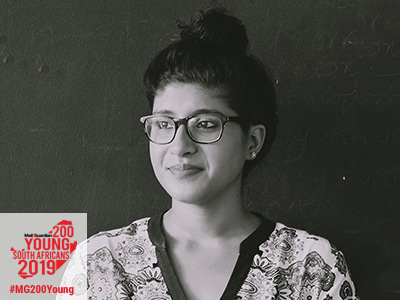Twenty-nine-year-old sustainable urban energy advisor Hlengiwe Radebe is completely focused on how this country, and this world, can do better in leading the clean life.
Born and educated in Johannesburg, she currently works at Energy Africa, a Cape Town-based nongovernmental organisation working with urban municipalities to promote the development of a low carbon, clean energy economy in southern Africa. The organisation works with local government around sustainable energy and alternative energy approaches for low income communities, including project implementation of municipal and small business energy services partnerships.
Alongside a passion for change and sustainability and strong process management skills, Radebe’s talents lie in building relationships, whether amongst officials or community members.
Beginning her journey towards a career centred around the natural environment, she completed courses such as ecology, environment and conservation, earth and atmospheric science, climate and society and environmental governance, comprising her BSc at the University of the Witwatersrand.
Hers was a quest to better understand how South African society might address increasing environmental challenges. Realising the need for extensive collaboration in environmental responses in this country, Radebe continued to pursue an MSc in interdisciplinary global change studies.
She joined Sustainable Energy Africa as an intern under the South African branch of the World Wide Fund for Nature, in its environmental leaders graduate programme and worked on projects exploring sustainable, energy-efficient options in urban centres, supporting the transition to sustainable energy through strategy development, implementation and knowledge exchange, as well the reduction of energy poverty in low-income cities through clean, affordable solutions.
In one of the projects Radebe has driven, women were assisted in establishing businesses in the production and sale of hotboxes for cooking: alleviating energy poverty in their communities with a simple, effective, and convenient tool that saves a substantial amount of cooking energy, frees up women’s time and enables them to engage in other activities.
Her current projects include working with key South African metros to develop bylaws that will ensure that new buildings have a net zero carbon rating, and working with secondary cities and metros on policy and processes for promoting and supporting the installation of small-scale, embedded generation options – including the sale of excess energy to the municipality.
Concerned with the transfer of knowledge and a sense of responsibilty around environmental affairs, Radebe works with the Applied Centre for Climate and Earth Systems Science, at the Council for Scientific and Industrial Research to coordinate the annual Habitable Planet workshops for high school and university students to explore career paths enabling them to shape the change that they envision for their planet. – Cayleigh Bright
Twitter: @Hlengi_prettyg
























